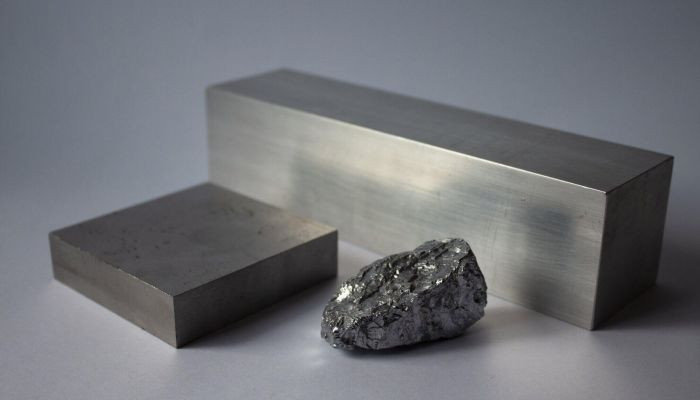The Battle for Ukraine's Titanium
 estern support for Ukraine over the past year has tied the U.S. and its European Union-NATO allies inextricably to Kyiv's fate. President Vladimir Putin's second invasion of the country appears to have backfired, driving Ukraine deeper into the arms of the Euro-Atlantic community and cementing Kyiv's ambition for membership of the EU and NATO. Now, there is a nascent effort underway in the U.S. and allied nations to identify, develop, and utilize Ukraine's vast resources of a key metal crucial for the development of the West's most advanced military technology which will form the backbone of future deterrence against Russia and China. Titanium is a lightweight yet strong metal used extensively in advanced military applications like fighter jets, helicopters, naval ships, tanks, long-range missiles, and many others. If Ukraine wins, the U.S. and its allies will be in pole position to cultivate a new conduit of titanium. But if Russia manages to seize the country's deposits and plants, Moscow will boost its global influence over increasingly strategic resource.A Vital Commodity Ukraine is one of only seven nations producing titanium sponge, the basis for titanium metal. China and Russia—America's most prominent strategic rivals—are among this select group. China produced more than 231,000 tons of titanium sponge last year, according to the U.S. Geological Survey, making up 57 percent of global output. Next came Japan with 17 percent, and Russia with 13 percent. Kazakhstan produced almost 18,000 tons and Ukraine more than 4,000 tons. Moscow's weaponization of energy resources has prompted fears in Washington, D.C. and other NATO capitals that the Kremlin may one day also freeze titanium exports, which would put aerospace and defense companies in a bind. Western dependence on Russian titanium means the metal has so far escaped the sanction campaigns launched against Moscow by the U.S., EU, and their allies. Aerospace giant Boeing maintains its joint venture with Russia's VSMPO-Avisma—the world's largest titanium exporter—though froze orders following the invasion. Others, like Europe's Airbus commercial aircraft corporation, continue to source titanium from VSMPO. |

Farmers protest in Brussels over planned EU agriculture funding cuts (video)
327Yesterday, 21:42
First lady Melania Trump's documentary movie trailer is out (video)
287Yesterday, 17:12
22 Flights Cancelled, 250 Delayed Due To Delhi Smog
330Yesterday, 13:12
OpenAI Launches New Image Generator GPT Image 1.5 (video)
50717.12.2025, 18:00
Delhi continues to choke as AQI remains ‘very poor’ (video)
51217.12.2025, 12:15
Elon Musk Makes History as the First Individual to Hit a $600 Billion Net Worth, Leaving Cubana Chiefpriest and 30BG Members Behind
69716.12.2025, 00:41
